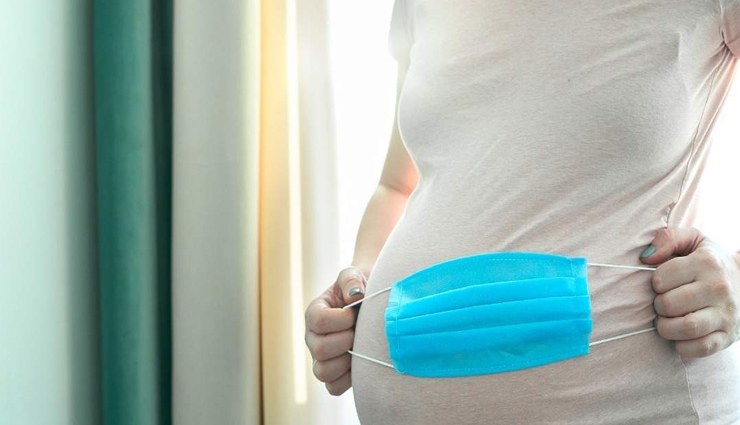- Home›
- Healthy Living›
- Pregnant Women Should Keep These Precautions While Traveling During Covid 19
Pregnant Women Should Keep These Precautions While Traveling During Covid 19
By: Priyanka Mon, 23 Nov 2020 5:31:41

Clinically Covid-19 is seen as a respiratory tract infection. Novel corona virus may cause mild respiratory tract infection. Non-life-threatening pneumonia when mild infection occurs and life-threatening pneumonia when severe infection occurs. This virus troubles people of all ages. However, pregnant women may be at greater risk of getting corona virus infection. However, there is no concrete evidence that suggests that pregnant women have more corona infections than other healthy individuals.

How does corona virus affect pregnancy?
Because the infection is constantly changing, its effect on the fetus during pregnancy is not clear. Although no direct transmission of the virus has been seen, pre-term berths have become more common due to covid-19. The virus also changes the maternal-fetal interface, affecting the health of both mother and child. Pregnant women will most likely experience flu-like symptoms. If the symptoms are worse then they are indicative of a respiratory tract infection, then consult a doctor without delay and make sure that you do not need to be admitted to the hospital.
What should pregnant women do to avoid corona virus?
Although it is not clear whether pregnant women are susceptible to Covid-19 or not, they should follow social distancing. The immune system is not at its best during pregnancy. It affects the body's average ability to fight viral infections. This will only be helpful when pregnant women are extra vigilant at such times. However, pregnant women should not be stressed about this. Make some good habits, do things that make you happy and try to get your mind out of stressful and worrying thoughts.

What precautions should pregnant women take when traveling in Covid-19?
Although pregnant women do not have any restrictions on sitting on the plane, but they should not do this unless it is very important. Appropriate hand hygiene should be followed along with wearing masks at all times during the journey. Avoid shaking hands with strangers, touching surfaces and then touching faces. It is better to wear disposable gloves besides face mask and face shield.
Pack for the pandemic
Because of COVID-19, you'll want to pack antibacterial wipes and hand sanitizer to use whenever you stop. Anytime you travel during pregnancy, bring your insurance card and a copy of your prenatal records with your provider's contact information in case the unexpected happens. You'll also want to pack these safety items if you plan to enjoy the great outdoors: Sunscreen with an SPF of at least 30% and UVA and UVB protection. Insect repellant. DEET is one of the most effective mosquito repellants. Using it as directed on your skin will not harm you or your baby during pregnancy. Prescriptions and over-the-counter medications for allergies, pain relief, or chronic conditions.

Protect your legs (and baby bump)
You might be tempted to drive straight through to your destination. However, pregnant women are at increased risk for blood clots – sitting for long periods of time increases that risk. Make each day’s drive as short as you can and stop every few hours to stretch your legs. Stretching will help reduce swelling and minimize the risk of clots forming. Wearing support stockings also can help improve blood flow through your legs. Seat belts are a must. They do NOT pose a risk for pregnant women. Secure your seat belt with the lap belt below your belly and position the shoulder strap between your breasts and off to the side of your belly.





